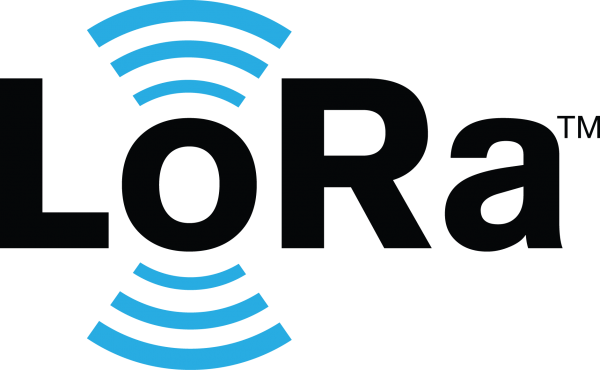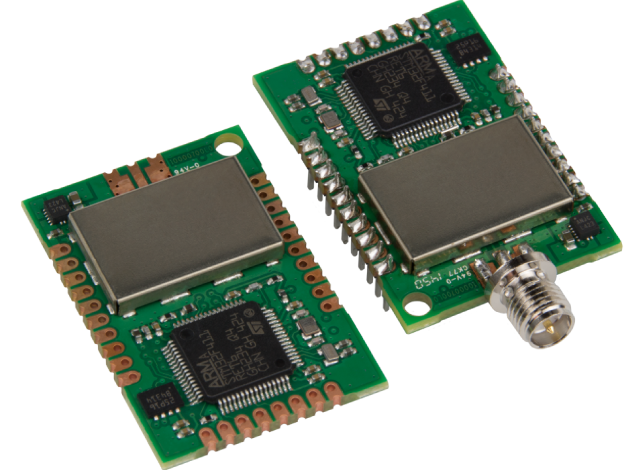A multifunctional and modular Firmware for Multitech's mDot based on ARM mBed provides a widerange of functionality for several Sensors such as MAX44009, BME280, MPU9250, SI1143 and uBlox. It allows you to quickly build a Sensornode that measures specific data with its sensors and sends it via LoRaWAN.
Dependencies: mDot_LoRa_Sensornode_Flowmeter_impl mbed-rtos mbed
LoRa-Sensornode Firmware for Multitech mDot
A multifunctional and modular Firmware for Multitech's mDot which provides a widerange of functionality for several Sensors. It allows you to quickly build a Sensornode that measures specific data with its sensors and sends it via LoRaWAN.


Supported Sensors
- MAX44009 (Lux Measurment) http://www.ebay.ie/itm/MAX44009-Ambient-Light-Sensor-Module-for-Arduino-with-4P-Pin-Header-/381676089124?hash=item58ddaaef24:g:-ecAAOSwzJ5XZm5E
- BME280 (Temperature, Pressure and Humdity Measurment) At the moment there are some known problem using this. https://www.adafruit.com/product/2652 https://www.amazon.com/Diymall-Pressure-Temperature-Sensor-Arduino/dp/B0118XCKTG
- MPU9250 (Acceleration, Gyroscope and Magnetometer) http://www.watterott.com/de/9-DOF-IMU-Module-With-MPU-9250
- Si1143 (Proximity up to 50cm) https://moderndevice.com/product/si1143-proximity-sensors/
- uBlox M8Q (GPS Position) http://www.dx.com/de/p/gygpsv3-m8n-u-blox-neo-m8n-001-flight-controller-gps-module-blue-394557#.V4lFW-uLRhE
Idea
The Firmware has some predefined Application Modes running different Tasks(Measurements). Each mode can be used in a different Scenario. Application_Modes define which sensors are used, how often they aquire data and how often the data has to be sent via LoRa. Lets say you just want to measure the Light then you choose an Application_Mode (or define one) that only runs TaskLight for light measurement. As a standard all measurements are taken every second and sent via LoRa but you can change that interval depending on your usage Scenario
app/LoRa.h
- Committer:
- mitea1
- Date:
- 2018-11-02
- Revision:
- 10:4051c38bf73f
- Parent:
- 1:fe242f3e341b
File content as of revision 10:4051c38bf73f:
/**
* @file LoRa.h
*
* @author Adrian
* @date May 31, 2016
*
*/
#include "mDot.h"
#include "MTSLog.h"
#include "LoRaConfig.h"
#ifndef LORA_H_
#define LORA_H_
/**
* @class LoRa
* @brief Represents the LoRa Module with all its functionality. It wraps Multitech owns mDot Library functions.
* It's possible to wrap other functionality from other LoRa Module Manufactures for future use cases
*/
class LoRa {
public:
LoRa(mDot*,RawSerial*);
virtual ~LoRa();
/**
* @brief Initializes and start the LoRa Module depending on the desireMode
* @param desiredMode
*/
void init(LORA_MODE desiredMode);
/**
* @brief Sends data stored inside a vector via LoRa
* @param dataToSend the vector that contains the Data that needs to be sent
* @return
*/
int32_t send(std::vector<uint8_t>& dataToSend);
/**
* @brief Receives data via LoRa and stores it inside a vector
* @param receivedData the vector where the received data needs to be stored
* @return
*/
int32_t recv(std::vector<uint8_t>& receivedData);
/**
* @brief Gets the Rssi of the last sent Message. It's important that at least 1
* Acknowledgment Retries is set by setAckRetries()
* @return
*/
int16_t getLastRssi();
/**
* @brief DON'T USE IT RESULTS IN HARDFAULT!
* Gets the SNR of the last sent Message.
* @return
*/
int16_t getLastSnr();
/**
* @brief Gets the actual spreading Factor from 7 to 12 from the LoRa Module
* @return
*/
uint8_t getSpreadingFactor();
/**
* @brief Gets the actual transmit Power in dBm from the LoRa Module
* @return
*/
uint8_t getTxPowerdBm();
/**
* @brief Sends a 0 Byte long ping message to the gateway
*/
void ping();
/**
* @brief Get ms until next free channel
* only applicable for European models, US models return 0
*/
uint32_t getNextTxMs();
private:
mDot* dot;
RawSerial* debugSerial;
LoRaConfig* config;
int16_t rssi;
int16_t snr;
uint8_t spreadingFactor;
uint8_t txPowerdBm;
/**
* @brief Depending on the LoRaConfig it defines wheter the LoRa Module connects to a
* public network or not
* @return
*/
int32_t setPublicNetwork();
/**
* @brief Depending on the LoRaConfig it defines the frequency SubBand that is used for
* transmission of Message to the Gateway
* @return
*/
int32_t setFrequencySubBand();
/**
* @brief Depending on the LoRaConfig it defines the name of the Network the
* LoRa Module signs up
* @return
*/
int32_t setNetworkName();
/**
* @brief Depending on the LoRaConfig it defines the Passphrase thats used to
* use the Network
* @return
*/
int32_t setNetworkPassphrase();
/**
* @brief Depending on the LoRaConfig it defines that AppEUI thats used for OTAA
* @return
*/
int32_t setAppEUI();
/**
* @brief Depending on the LoRaConfig it defines that AppKey thats used for OTAA
* @return
*/
int32_t setAppKey();
/**
* @brief Depending on the LoRaConfig it defines that DeviceEUI thats used for OTAA
* @return
*/
int32_t setDeviceEUI();
/**
* @brief Depending on the LoRaConfig it sets the join mode of the Node.
* Either OTTA (Over the Air Activation or ABP (Activation by Personalization)
* @param
* @return
*/
int32_t setJoinMode();
/**
* @brief Depending on the LoRaConfig it defines the spreading Factor
* for transmissions via LoRa
* @return
*/
int32_t setSpreadingFactor();
/**
* @brief Depending on the LoRaConfig it defines the number of Acknowledgment Retries
* that are made
* @return
*/
int32_t setAckRetries();
/**
* @brief Depending on the LoRaConfig it defines the power of LoRa data Transmission
* @return
*/
int32_t setTxPower();
/**
* @brief Saves parameters of the LoRa Module
*/
void saveConfig();
/**
* @brief Resets Configuration of the LoRa Module
*/
void resetConfig();
/**
* @brief Tries to join the Network defined by NetworkName and NetworkPassphrase
*/
void joinNetwork();
};
#endif /* LORA_H_ */